
32.3K
Downloads
59
Episodes
Social Protection Podcast is brought to you by socialprotection.org. We’re a knowledge sharing and capacity building platform, open to social protection practitioners, policy-makers, and experts, as well as academics and students. Social protection is a large and growing field, that has also achieved increased profile and salience since 2020 due to COVID-19. From building delivery systems and protecting People with Disabilities, to social protection financing and school feeding – there is no shortage of topics for Social Protection Podcast to tackle. Each month we will aim to bring you rich, interesting and different content. Through interviews, discussions and debates with experts and practitioners, Social Protection Podcast will illuminate new research and bring a range of perspectives to debates and controversies as well as areas of growing consensus.
Episodes
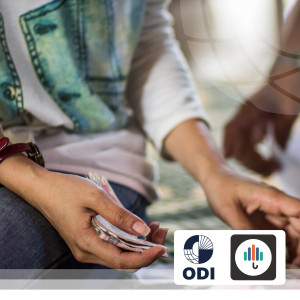
Thursday Jul 15, 2021
Thursday Jul 15, 2021
In the months of June and July, the Social Protection Podcast is hosting a special series in partnership with ODI and GIZ. Across six episodes, our guest host Francesca Bastagli, Director of the Equity and Social Policy programme and Principal Research Fellow at ODI, will moderate conversations around the guiding question: “Covid-19: a turning point for social protection?”.
These six episodes are part of an ODI research project, funded by GIZ, on the emerging evidence and learning from social protection measures adopted in the early months, and within the first year, of the onset of the Covid-19 crisis. It asks how effective have social protection responses to Covid-19 to date been, especially for some of those hardest hit, including refugees, women, informal workers and people living in urban areas? What policy features enabled or hindered adequate crisis response? And, while many of the measures are temporary, what potential opportunities and risks do they present for strengthening social protection in the long term?
The ODI-GIZ study covers six thematic areas, each with an accompanying paper. Each week of this podcast special series, Francesca will be joined by the lead author of one of the papers, along with an expert discussant.
This episode explores the financing of social protection during Covid-19 and beyond, with a focus on international financing and Official Development Assistance (ODA). Both prior to and during the pandemic, ODA played a critical role in supporting social protection provision in many low and middle-income countries. The Covid-19 response has prompted adjustments in ODA flows, instruments and processes. Which measures facilitated, or hindered, the timely mobilisation and disbursement of resources for social protection crisis response? What are the emerging trade-offs, risks and opportunities for addressing the social protection financing gap in the longer term? And what lessons are emerging for the equitable and sustainable provision of social protection going forward?
This episode was inspired by the ODI-GIZ project thematic paper “Official development assistance financing for social protection: Lessons from the Covid-19 response” by Anna McCord, Cécile Cherrier, Nathalie Both and Francesca Bastagli (2021).
Our guests this week are:
- Anna McCord, Research Associate, Equity and Social Policy, ODI
- Michal Rutkowski, Global Director for Social Protection and Jobs, World Bank
Episode links
Webinar recording - Taking stock at the one-year mark: social protection during COVID-19 and beyond
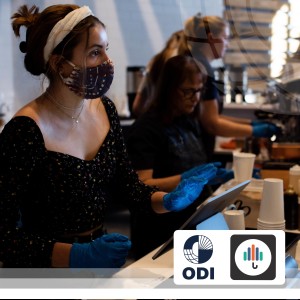
Thursday Jul 08, 2021
Thursday Jul 08, 2021
In the months of June and July, the Social Protection Podcast is hosting a special series in partnership with ODI and GIZ. Across six episodes, our guest host Francesca Bastagli, Director of the Equity and Social Policy programme and Principal Research Fellow at ODI, will moderate conversations around the guiding question: “Covid-19: a turning point for social protection?”.
These six episodes are part of an ODI research project, funded by GIZ, on the emerging evidence and learning from social protection measures adopted in the early months, and within the first year, of the onset of the Covid-19 crisis. It asks how effective have social protection responses to Covid-19 to date been, especially for some of those hardest hit, including refugees, women, informal workers and people living in urban areas? What policy features enabled or hindered adequate crisis response? And, while many of the measures are temporary, what potential opportunities and risks do they present for strengthening social protection in the long term?
The ODI-GIZ study covers six thematic areas, each with an accompanying paper. Each week of this podcast special series, Francesca will be joined by the lead author of one of the papers, along with an expert discussant.
The Covid-19 pandemic has aggravated many gender inequalities, with women more likely to experience job and livelihood losses than men, taking on the lion’s share of the increase in unpaid care work, and facing heightened risks of gender-based violence and exploitation due to lockdown measures and financial strain.
How have social protection measures taken since the onset of Covid-19 fared in providing adequate support to women negatively affected by the crisis? Does the emerging evidence point to initiatives taken to date undermining or supporting gender equality? What policy lessons are emerging to help ensure social protection and crisis response are gender-responsive moving forward?
This episode was inspired by the ODI-GIZ project thematic paper “Have social protection responses to Covid-19 undermined or supported gender equality? Emerging lessons from a gender perspective” by Rebecca Holmes and Abigail Hunt (2021).
Our guests this week are:
- Rebecca Holmes, Research Associate, ODI and Deputy Team Lead, SPACE
- Hoodah Abrahams-Fayker, National Advocacy Manager, Black Sash (South Africa)
Episode links
Social protection, women’s and girls’ empowerment and gender equality | odi.org
Gender and Social Protection in the COVID-19 Economic Recovery: Opportunities and Challenges
Webinar recording - Taking stock at the one-year mark: social protection during COVID-19 and beyond
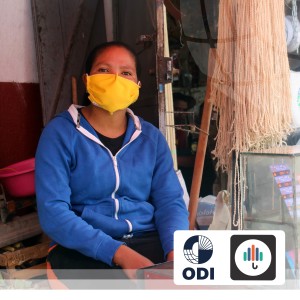
Thursday Jul 01, 2021
ODI Series Ep. 3 | Covid-19: crisis as opportunity for urban cash transfers?
Thursday Jul 01, 2021
Thursday Jul 01, 2021
In the months of June and July, the Social Protection Podcast is hosting a special series in partnership with ODI and GIZ. Across six episodes, our guest host Francesca Bastagli, Director of the Equity and Social Policy programme and Principal Research Fellow at ODI, will moderate conversations around the guiding question: “Covid-19: a turning point for social protection?”.
These six episodes are part of an ODI research project, funded by GIZ, on the emerging evidence and learning from social protection measures adopted in the early months, and within the first year, of the onset of the Covid-19 crisis. It asks how effective have social protection responses to Covid-19 to date been, especially for some of those hardest hit, including refugees, women, informal workers and people living in urban areas? What policy features enabled or hindered adequate crisis response? And, while many of the measures are temporary, what potential opportunities and risks do they present for strengthening social protection in the long term?
The ODI-GIZ study covers six thematic areas, each with an accompanying paper. Each week of this podcast special series, Francesca will be joined by the lead author of one of the papers, along with an expert discussant.
This episode looks at social protection in urban contexts since the onset of the pandemic, with a particular focus on social assistance and cash transfers. When Covid-19 hit, existing provision of urban social assistance was limited in many low and middle-income countries. The crisis quickly exposed this gap, with urban dwellers facing a high risk of infection and livelihoods losses as the virus spread. In response to these urgent needs, emergency measures were widely taken to step up assistance in urban areas. How well have these efforts supported urban residents through the crisis so far? Do the Covid-19 measures hold potential to help address gaps in provision in the longer term? What is the emerging evidence and learning for improving future social protection for urban dwellers?
This episode was inspired by the ODI-GIZ project thematic paper “Covid-19: crisis as opportunity for urban cash transfers?” by Keetie Roelen, Edward Archibald and Christy Lowe (2021).
Our guests this week are:
- Keetie Roelen, Research Fellow and Co-Director of the Center for Social Protection at the Institute of Development Studies (IDS)
- Ugo Gentilini, Global Lead for Social Assistance, World Bank
Episode links
Entering the City : Emerging Evidence and Practices with Safety Nets in Urban Areas (2015)
Cash in the City : Emerging Lessons from Implementing Cash Transfers in Urban Africa (2021)
Webinar recording - Taking stock at the one-year mark: social protection during COVID-19 and beyond
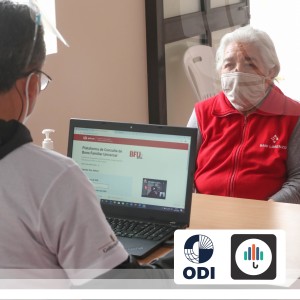
Thursday Jun 24, 2021
ODI Series Ep. 2 | National cash transfer responses to Covid-19: operational lessons
Thursday Jun 24, 2021
Thursday Jun 24, 2021
In the months of June and July, the Social Protection Podcast is hosting a special series in partnership with ODI and GIZ. Across six episodes, our guest host Francesca Bastagli, Director of the Equity and Social Policy programme and Principal Research Fellow at ODI, will moderate conversations around the guiding question: “Covid-19: a turning point for social protection?”.
These six episodes are part of an ODI research project, funded by GIZ, on the emerging evidence and learning from social protection measures adopted in the early months, and within the first year, of the onset of the Covid-19 crisis. It asks how effective have social protection responses to Covid-19 to date been, especially for some of those hardest hit, including refugees, women, informal workers and people living in urban areas? What policy features enabled or hindered adequate crisis response? And, while many of the measures are temporary, what potential opportunities and risks do they present for strengthening social protection in the long term?
The ODI-GIZ study covers six thematic areas, each with an accompanying paper. Each week of this podcast special series, Francesca will be joined by the lead author of one of the papers, along with an expert discussant.
This episode explores social protection implementation and delivery. The pandemic raised operational challenges for social protection systems, arising from both lockdown measures and virus transmission risks and the stark increases in demand for assistance among millions of people in need of support. Amid these crisis conditions, operational adjustments and innovations were adopted, including through an increased reliance on digital approaches. How well have the measures taken to date worked, especially for those previously excluded from social protection systems? Do the innovations adopted promise to support inclusive, adaptive social protection going forward, or risk perpetuating gaps and inequities? What lessons are emerging for system strengthening and response to future shocks?
This episode was inspired by the ODI-GIZ project thematic paper “National cash transfer responses to Covid-19: operational lessons learned for social protection system-strengthening and future shocks” by Christy Lowe, Anna McCord and Rodolfo Beazley (2021).
Our guests this week are:
- Christy Lowe, Research Officer - Equity and Social Policy Programme, ODI.
- Madhumitha Hebbar, MAINTAINS project Lead Researcher, Independent Consultant
Episode links
Towards shock-responsive social protection - COVID-19 case studies
On-demand and up-to-date? Dynamic inclusion and data updating for social assistance
Webinar recording - Taking stock at the one-year mark: social protection during COVID-19 and beyond
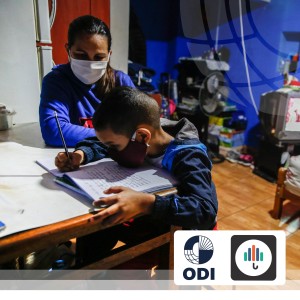
Thursday Jun 24, 2021
Thursday Jun 24, 2021
In the months of June and July, the Social Protection Podcast is hosting a special series in partnership with ODI and GIZ. Across six episodes, our guest host Francesca Bastagli, Director of the Equity and Social Policy programme and Principal Research Fellow at ODI, will moderate conversations around the guiding question: “Covid-19: a turning point for social protection?”.
These six episodes are part of an ODI research project, funded by GIZ, on the emerging evidence and learning from social protection measures adopted in the early months, and within the first year, of the onset of the Covid-19 crisis. It asks how effective have social protection responses to Covid-19 to date been, especially for some of those hardest hit, including refugees, women, informal workers and people living in urban areas? What policy features enabled or hindered adequate crisis response? And, while many of the measures are temporary, what potential opportunities and risks do they present for strengthening social protection in the long term?
The ODI-GIZ study covers six thematic areas, each with an accompanying paper. Each week of this podcast special series, Francesca will be joined by the lead author of one of the papers, along with an expert discussant.
This first episode is on social protection and refugees. Even before Covid-19, refugees were among the most marginalised in their host countries, with restrictions on their access to employment, social protection, healthcare and other public services. This left them especially exposed to the impacts of the pandemic. Efforts to extend or step up provision to refugees include: the extension of national social protection policies to refugees and alignment or integration of humanitarian led responses with social protection government measures. How effective have these been? What are the emerging lessons and is this a turning point for extending social protection to refugees in a more permanent fashion?
This episode was inspired by the ODI-GIZ project thematic paper “Social protection provisions to refugees during Covid-19: lessons learned from government and humanitarian responses.” by Jessica Hagen-Zanker and Nathalie Both (2021).
Our guests this week are:
- Jessica Hagen-Zanker, Senior Research Fellow, ODI
- Andrew Mitchell, Senior Social Protection Officer, Division of Resilience and Solutions, UNHCR
Episode links
Take socialprotection.org's 2021 Satisfaction Survey
Social protection response to Covid-19 and beyond: Lessons learned for adaptive social protection
Webinar recording - Taking stock at the one-year mark: social protection during COVID-19 and beyond
Social protection responses to forced displacement
Cash transfers to Syrian refugees in Lebanon: promoting social cohesion and protection?
UNHCR Social protection responses to COVID-19 for forcibly displaced persons
UNHCR Cash Assistance and COVID-19 Main Findings from Post-Distribution Monitoring Report
UNHCR Cash Assistance and COVID-19: Emerging Field Practices I
UNHCR Cash Assistance and COVID-19: Emerging Field Practices II
UNHCR COVID19 Emerging practices - Livelihood and Economic Inclusion

Thursday May 27, 2021
Ep. 3 | Global trends in (near) universal child grants
Thursday May 27, 2021
Thursday May 27, 2021
In March, the United States brought in a temporary, near-universal child benefit as part of the American Rescue Plan, enacted as a response to COVID-19. Many in government are pushing to make it permanent, and that would make it a significant change in US social policy. But, of course, child-focused social protection benefits are relatively common in other countries, including lower and middle income countries. And even if the contexts are different, the debates may be familiar.
In this episode, we explore the debates around universality and investment in early childhood in the US. We compare them with those in upper-middle income Argentina, which has had near-universal child allowances since 2009. And, we'll talk about how these developments fit with global trends.
Our guests this week are:
- Sophie Collyer, Research Director at the Center on Poverty and Social Policy at Columbia University in New York.
- Oscar Cetrangolo, Director at the Faculty of Economics at the University of Buenos Aires
- David Stewart, Chief of Child Poverty and Social Protection at UNICEF headquarters in New York.
Links from episode:
Unicef Case Study - Towards universal social protection for children: Achieving SDG 1.3
Plus our monthly round up of ‘Quick Wins’, highlighting news, achievements and research that have sparked our interest.
Quick Wins from Dr Keetie Roelen from Institute of Development Studies:
- Resources by the Global Coalition to End Child Poverty
- Brief on child-sensitive social protection
- Recent episode of Poverty Unpacked
- Resources on Covid-19 and social protection published by SPACE
- The new COVID-19 page on socialprotection.org
- Research by Marion Ouma, a political scientist from Kenya, who wrote about how social protection took shape in Kenya
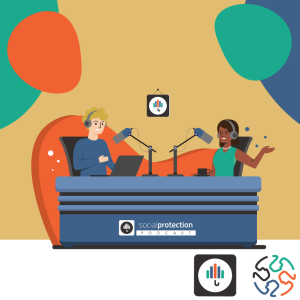
Thursday Apr 29, 2021
Ep. 2 | Scaling up economic inclusion
Thursday Apr 29, 2021
Thursday Apr 29, 2021
In this episode, we’re talking about economic inclusion. Economic inclusion programmes typically target the poorest people and seek to address the many barriers to escaping poverty by providing multiple, complementary interventions. These generally include providing cash transfer assets, but also training, mentoring, access to finance and so on. These programmes are increasing in popularity as evidence starts to show promising and lasting results.
According to a major report published earlier this year, there were economic inclusion programmes running in 75 countries – many still quite new – reaching 92 million people. And, with the number of poor living in extreme poverty on the rise for the first time in a decade due to COVID-19, and the increasing focus on re-engaging people in the economy post-pandemic, the time may be ripe for a big push on taking more of these programmes to scale.
Our guests bring real life examples and discuss recent findings to illustrate the challenges, lessons learned and best practices on graduation programmes.
Featuring:
- Lauren Whitehead, the Director of Technical Assistance for BRAC Ultra-Poor Graduation Initiative, a global program partnering with governments in Africa and Asia on integrating economic inclusion into existing social protection programs; and
- Colin Andrews, the Program Manager in the World Bank’s Social Protection and Jobs Global Practice. He leads the Partnership for Economic Inclusion, a multi-partner initiative to support the scale-up of national economic inclusion programs, and is the lead author of the State of Economic Inclusion report: The Potential to Scale, launched earlier this year.
Links from episode:
Global Learning Event on Economic Inclusion for the Poorest – Moving to Scale (27-28 April).
The State of Economic Inclusion Report 2021: The Potential for Scale
Plus our monthly round up of ‘Quick Wins’, highlighting news, achievements and research that have sparked our interest.
Quick Wins from Fazley Elahi Mahmud, from DFAT’s Social Protection Hub:
- Social Protection for Economic Inclusion: Adapting the Graduation Approach in Asia and the Pacific webinar, hosted by Asian Development Bank with Socialprotection.org
- Food vs Food Stamp: Evidence from An At-Scale Experiment in Indonesia,
- WIEGO’s Informal Economy Podcast
- Informal Economy Podcast: Social Protection - #17 Universal Basic Income in South Africa
- Informal Economy Podcast: Social Protection - #18 Social Protection Needs For Older Informal Workers
- Social Protection for Employment Community, SPEC
- Infographic Series
Additional resource:
- Economic inclusion and Covid-19 response webinar by the World Bank Group, the Partnership for Economic Inclusion (PEI) and the Social Protection for Employment Community (SPEC) on socialprotection.org
To find out about our latest podcast episodes, subscribe to our newsletter.
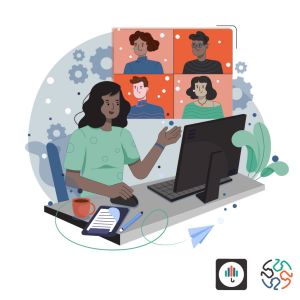
Friday Mar 26, 2021
Ep. 1 | Women in Leadership during the COVID-19 crisis
Friday Mar 26, 2021
Friday Mar 26, 2021
This month, March, marks a year since COVID-19 swept over the globe, and triggered the first waves of closures and lockdowns in many countries. It has been a big year for social protection, as governments, international organisations and communities raced to extend safety nets to the many millions of people who lost work or became more vulnerable due to the pandemic.
In our first episode of the Social Protection Podcast, we look at the challenges and lessons of COVID-19 from a practitioner perspective. You’ll hear from four women leaders in the social protection community, who have spent the last year responding to economic, employment and health crises wrought by the pandemic. Featuring:
- Cecilia Mbaka, Secretary for Social Development for the Government of Kenya.
- Carmen Roca, WIEGO coordinator in Lima City, Peru.
- Sri Kusumastuti Rahayu, leader of the Social Protection Policy Team at the Secretariat for the National Team for Accelerating Poverty Reduction in Indonesia.
- Dr Hania Sholkamy, Associate Research Professor in the Center for Social Research at the American University in Cairo.
Plus! Our monthly round up of ‘Quick Wins’, highlighting news, achievements and research that have sparked our interest.
Quick Wins from Charlotte Bilo, from the International Policy Centre for Inclusive Growth:
“Don’t Let Another Crisis Go to Waste: The COVID-19 Pandemic and the Imperative for a Paradigm Shift”, by James Heintz, Silke Saab and Laura Turquet
“COVID-19 Global Gender Response Tracker” from UNDP and UNWomen.
Poverty Unpacked podcast, hosted by Keetie Roelen at the Institute of Development Studies.
- Episode #9: Social protection response to Covid-19
- Episode #4: Shifting the blame and shame of poverty
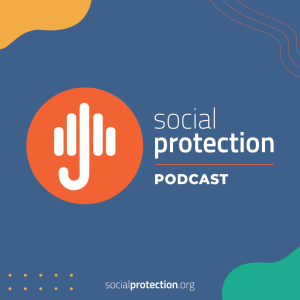
Monday Mar 15, 2021
Teaser | Social Protection Podcast Ep. 1
Monday Mar 15, 2021
Monday Mar 15, 2021
This is a teaser for our first episode which will launch on March 26. Subscribe now so you don't miss it!
If you have discovered this podcast, you probably already know that the last year has been big for social protection. Worldwide, governments, international organisations and communities raced to extend safety nets to the many millions of people who lost work or became more vulnerable due to COVID-19. Many of you have been actively involved in that effort, and of course the pandemic has affected us all in different ways.
So, in this first episode, we bring you a retrospective on our collective year of COVID-19 - and some ideas for the future.
You will hear from four women leaders in the social protection community, who like you have spent the last year responding to economic, employment and health crises wrought by COVID-19.
